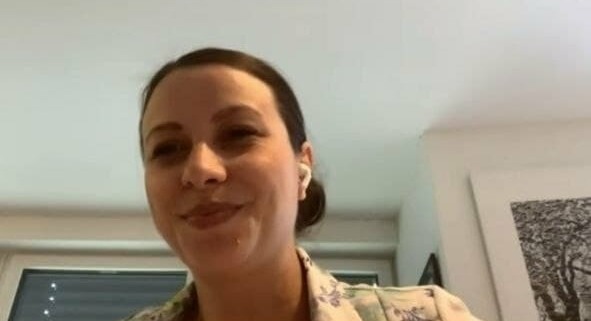Today, 14 April, 2021, Irena Joveva MEP participated in a virtual conference on renewing relations and the future between Africa and Europe, organised by the Renew Europe political group. She discussed the creation of post-pandemic health synergies. The COVID-19 pandemic has once again demonstrated the need for continued and high-quality cooperation between the European Union and Africa within the health sector. The discussion focused on the ongoing management of the pandemic, lessons learned, and future cooperation between the EU and Africa.
MEP Joveva stressed the importance of vaccination, which is the only way to contain a pandemic, but unfortunately, the slow supply of vaccines is a major obstacle and Africa is in a particularly bad position. This situation is increasing inequalities between countries and economies. Africa also has problems producing its own vaccines – there are still many challenges in trying to establish a sustainable vaccine industry in Africa. “Vaccine production is complex, requires large financial investments, and a long-term vision. The focus should be on issues such as innovative financing to ensure quality. According to the World Health Organisation, hundreds of thousands of people on the African continent have died from infectious diseases such as yellow fever, Ebola, cholera, tuberculosis, and malaria. There is, therefore, a clear need to strengthen African health systems and to build national and community health systems that are accessible, sustainable, resilient, and of high quality,” she added.
She also pointed out that the European Union was one of the largest donors of the Covid-19 vaccine and that majority of the vaccines and protective equipment for Africa comes from Europe. The MEP also expressed her concern about whether the Serum Institute of India would deliver the promised doses of vaccine to Africa, as India might prioritize the use of these doses for its own population. It is ‘vaccine nationalism’ or protectionism that presents a serious threat of overcoming the crisis.
“A few weeks ago, there was a lot of insinuation in the press that the European Union was also advocating such a position, which is not true. Unlike some other parts of the developed world, the EU is still one of the largest exporters of vaccines and is committed to the Covax scheme. The EU is also a strong advocate for open trade and global efforts,” said Joveva, listing some of her successful humanitarian projects. “Health is at the heart of the new EU-Africa strategy.”
She also spoke about challenges in other areas, such as combating climate change, preserving biodiversity, and the potential of green growth. Europe’s development objectives in Africa must be accompanied by engagement and dialogue, and a genuine partnership. Joveva believes that the EU could do much more in partnership with Africa. The exchange of good practices and information should be stepped up and African countries should be given the conditions to fully exploit their potential. “Not only because it’s the right thing to do, but also because it helps us all. We are increasingly dependent on each other, and we should tackle global problems together. Because once the health crisis is over, the more complex and longer-term crisis of global warming will have to be tackled,” she concluded.
The full second part of the event can be found here.





Leave a Reply
Want to join the discussion?Feel free to contribute!